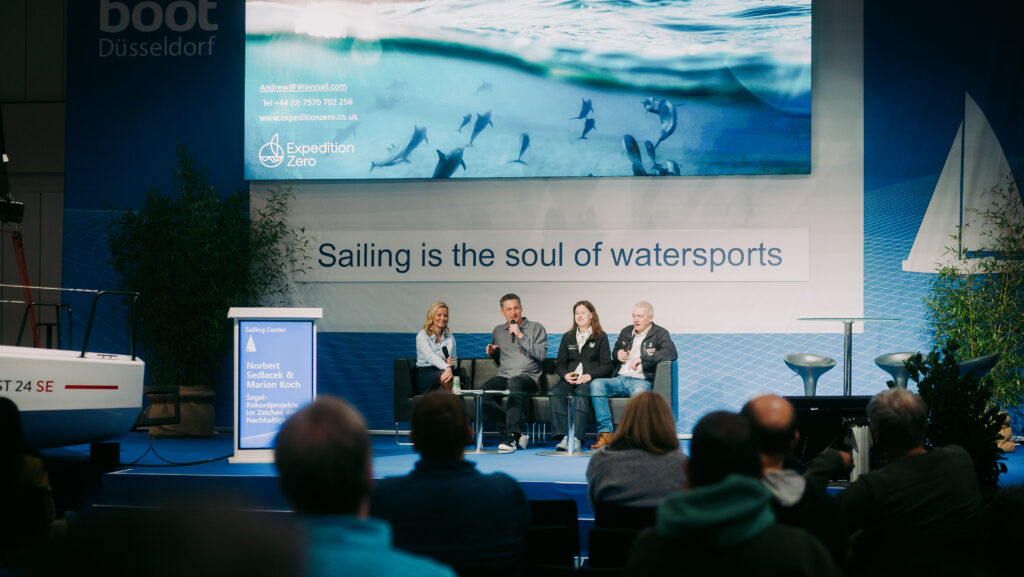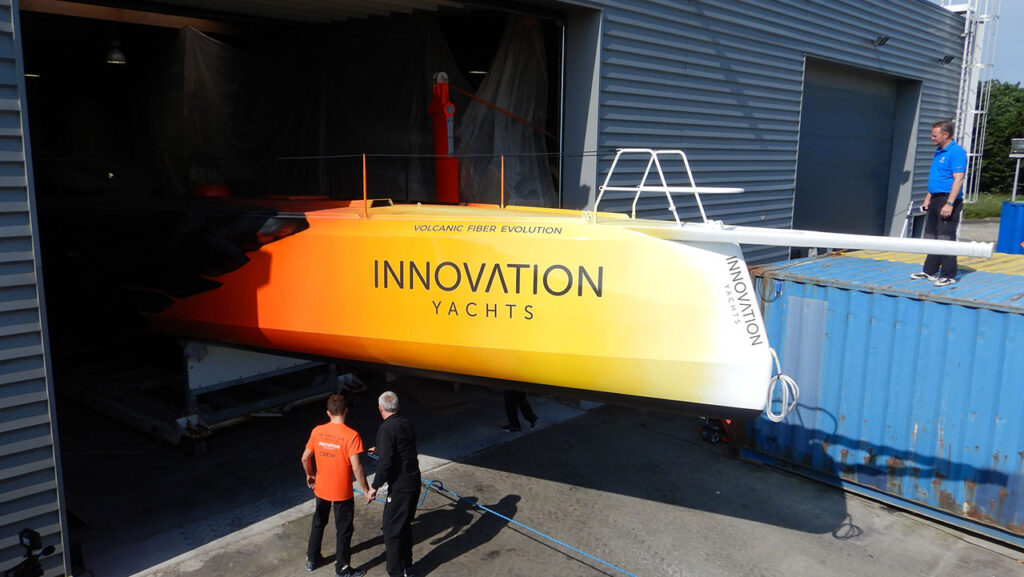
Expedition Zero launches first ‘sustainable’ expedition through Northwest Passage
Just a month after its launch at boot Düsseldorf, adventure sailing startup Expedition Zero has revealed plans for an inaugural expedition through the Northwest Passage.
Aiming to ‘redefine the sailing industry by developing and leasing commercial adventure yachts with the lowest environmental impact’, Expedition Zero is pioneering change by upcycling abandoned yachts and creating a new class of expedition vessels using innovative, low-impact, fully recyclable materials for hulls and interiors, replacing synthetic fibres like fibreglass.
Scheduled for August 2026 in partnership with its first customer, adventure sailing company Wavysail, the voyage aims to set a new standard for sustainable adventure sailing by navigating one of the most storied and challenging sea routes on the planet.
The passage stretches from the Atlantic Ocean to the Pacific through the Canadian Arctic Archipelago, offering a glimpse into a world of dramatic ice floes, pristine arctic landscapes, and uncharted waters.
The journey, starting in Nuuk, Greenland, and concluding in Nome, Alaska, will cover over 900 miles of the Arctic’s most formidable waters.

Expedition Zero launched at boot Düsseldorf 2024.
Expedition Zero says the 72ft expedition yacht for the journey will be upcycled using low-impact, fully recyclable materials. Coupled with the latest in electric propulsion technology and powered entirely by sun, sea and wind, this yacht is designed to navigate the Arctic with zero fossil-fuel use.
“The marine industry’s response to our launch has been phenomenal, affirming our belief that it’s possible to combine high-adventure sailing with low environmental impact,” says Expedition Zero CEO Andrew Cowen. “There’s no better proving ground for our first yacht than the fabled Northwest Passage — a pristine environment that demands respect and minimal impact from those who traverse it. This is adventure sailing at its most responsible and innovative.”
Despite its sustainable image, commercial sailing faces significant environmental challenges. A ten-day sailing adventure can consume up to 200 litres of diesel and produce more than one ton of carbon emissions – the equivalent of a small car’s footprint for a year. The industry also has limited end-of-life solutions for yachts, with an estimated 24,000 abandoned yachts in Europe alone. Thus, Expedition Zero is seeking to change commercial adventure sailing.
The startup is spearheaded by former Unilever global board member Andrew Cowen and professional sailor Jim Dobie. It has been developed in partnership with Innovation Yachts, a leader in environmental yacht design and construction and the winner of the prestigious Ocean Tribute award at boot Düsseldorf in 2023.

Wavysail co-founder David Immelman, an experienced skipper with more than 500,000
miles of ocean sailing experience, says: “We’re thrilled to be Expedition Zero’s launch partner, reflecting our shared commitment to purpose-driven adventure sailing. This voyage through the Northwest Passage represents the pinnacle of low-impact, high-adventure sailing.”
Limited spots are available for the inaugural expedition, with opportunities to join preparation expeditions to Norway, Svalbard, Iceland and Greenland in 2024 and 2025. The startup says comprehensive training and specialist gear are included in each expedition.
Northwest Passage News
The Northwest Passage has long attracted the hardiest and most adventurous sailors. But, in October 2022, Franco-Swiss sailor Yvan Bourgnon appeared before a Paris court, amid claims that he cheated and exaggerated during his record-breaking solo sail along the fabled route.
The lawsuit revolved around a dispute over a documentary, alleging that the adventurer actually spent numerous nights in a hotel in the Canadian Arctic, received assistance from other seafarers, and was even towed by a motorboat during parts of his ‘record-breaking’ passage.
The post Expedition Zero launches first ‘sustainable’ expedition through Northwest Passage appeared first on Marine Industry News.
